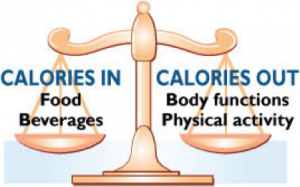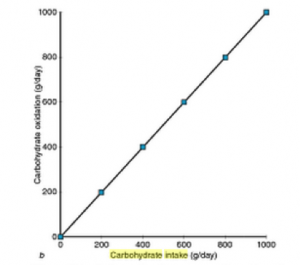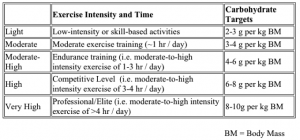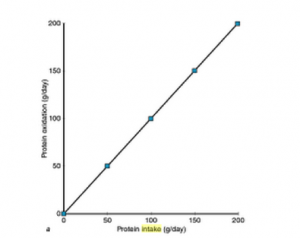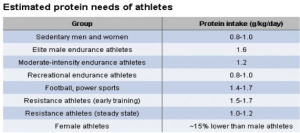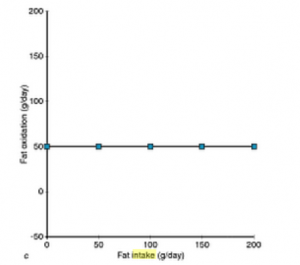Hi, my name is William (call me Will) Le, I am currently completing my undergraduate degree in Kinesiology at the U of A. Through the next couple of months, I will be posting blogs related to maintaining good health and the science (sometimes physiology) behind being healthy! I hope you, as the reader, will enjoy these entries and will even input them into your lives if you have not already!
The 4 Major Contributors to Good Nutrition
Before I begin this blog, I’d like to thank my former professor, Dr. Vicki Harber for teaching me all that I know about nutrition and macronutrients. I could not have been able to explain this without your help! Now, back to business, everyone knows about the Canada Food Guide; however, I would decipher nutrition in a more in-depth basis by looking past the food guide. I’ll be providing information on the 4 major macronutrients and the daily recommended intakes for each (while assuming that we are dealing with an average adult). Macronutrients are chemical substances found in food that provide energy and are required in large amounts by the human body for growth and other bodily functions.
Firstly, the key to good nutrition is understanding that most food is a source of energy. This energy can be gained from three major macronutrient sources: carbohydrates, fats or proteins– and a fourth, which is also used to a lesser extent, is alcohol. As a result, finding ways to balance this energy intake is necessary in order to maintain a normal and healthy weight. Energy balance is essentially Energy/Calories in through total Calories ingested vs Energy/Calories out through metabolic rate, thermic effect of eating and exercise.
- Energy balance is further determined by two major external factors: genetics and environment
- As a result of the environment or genetics, if Calories in > Calories out, there will be weight gain because of an energy surplus (having more energy than required); if there is an energy deficit, where Calories in < Calories out, there will be weight loss
Genetics is a factor that we can’t control (we have to go and blame our parents for this one!). We are simply born with a set genetic code, and we cannot change that. No matter what, there is always a point known as a “settling point “(signified by different % of fat), where the body always tends to always drift back to a preferred weight. This point is definitely genetics related because it ultimately determines how much energy is stored (amount, composition and distribution of the energy). As a result, there is a definite trend towards an eventual increase in weight as we get older (increase in fat mass and decrease in lean muscle mass). Yes, this point can change by decades, but it is also affected by one’s health and fitness capabilities. This means that, to an extent, one can control and slow down the process of eventual weight gain through exercise.
Next, I will speak about the major macronutrients. By understanding and monitoring these in a diet, you will be better able to maintain a healthy weight.
Carbohydrates (or simply, “carbs” in the real world): are arguably the most important macronutrient. Carbohydrates are very important in a diet because the body breaks these down into glucose, which cells of the body and muscles require to function. In addition, carbs are also broken down and stored as glycogen to allow portions for bodily cells/tissues to use in the future. Moreover, the more carbs you consume, the more your body gradually reaches satiety (a point when you feel full). Our bodies have an efficient regulation of these carbohydrates, meaning the body quickly breaks down or stores the carbs as glucose or glycogen, shortly after intake. Furthermore, this breakdown is linear in nature; carbohydrate intake is directly related to carbohydrate breakdown. In other words, our body regulates carbohydrates extremely well.
Daily carbohydrate requirements for an average adult is usually ~2-3 g/kg body mass. So to estimate your carbohydrate requirement using those values, take your mass in kg and multiply by 2 or 3 grams of carbs. (eg. 70 kg x 3 g/kg BM = 210 g of carbs daily requirement)
Proteins: the body can also regulate proteins equally well as carbohydrates. Similar to carbs, there is also a linear, direct relationship between protein intake and protein breakdown. Again, our bodies have efficient breakdown and usage mechanisms for proteins also. Our bodies typically use protein as a fuel source after we are depleted of glycogen (carbohydrates) and fats (during high intensity marathon running, for example).
Daily protein intake requirements for an average adult is usually ~1 g/kg BM.
Fats: also known as a major culprit to unhealthy living. Fats are the worst macronutrient when it comes to our body’s regulation of them. Up until now, we have discovered that our body is efficient at breaking down and storing carbs and proteins. In contrast, instead of breaking down most fat that is taken in, our bodies have an infinite capacity to store fat! Fat can be stored either subcutaneously (under skin), visceral (around the stomach) or in/around organs! In fact, only when 80 g of fat or more are taken in, will there be an increase in fat breakdown! That’s a lot of fat in one’s daily diet! However, this is not to say that you should strip fats completely from your diet. In fact, fats also help in growth and development, and play a role in digesting vitamins. Instead, try to eat more food with unsaturated fats and essential fatty acids (such as omega 3 or omega 6).
Alcohol: sometimes neglected when talking about nutrition, but is also considered as a source of energy. Alcohol (ethanol) is the best thing that the body can break down and is regarded as a perfect fuel. Alcohol has a perfect regulation because its products are toxic to the body’s system. As a result, the bodily systems will focus too much on dispelling alcohol when they enter the body, and ignore breaking down and storing the other macronutrients. Because of the body’s priorities at this time, there is an overall decrease in substrate oxidation (macronutrient breakdown); the body will defer other macronutrients such as fat, and instead of trying to break them down, will store them! This is why it might not be a good idea to have a couple beers and a whole pile of chicken wings all the time! You will definitely get bigger over time!
The good news is that, for the most part, efficient energy breakdown and storage go well when we’re in energy balance. Our bodies are very unique because its adjustment to the consumption of fat and carbohydrate intake is excellent when energy balance is maintained. In a sense, there is a zone of optimal functioning for the body, known as energy balance. Therefore, it is very important that people start managing how many total Calories they eat in one day, and compare that to their exercise expenditure values (I recommend using http://www.nutribase.com/exercala.htm to assist you in creating values for your exercise). Keep in mind that most meals you will consume are mixed fuels, meaning they have carbs, fats and proteins all combined!
REMEMBER! “The maintenance of a constant body weight and body composition requires achievement of a steady state in which the amount and composition of energy ingested is equal to the amount and composition of fuel burned.” (Hill et al. (1994))
… Thanks for reading! Stay tuned for my upcoming blogs
Will Le BscKin Student
References:
Costill D.L., Hargreaves M. Carbohydrate nutrition and fatigue. 1992 Feb;13(2):86-92.
Thomas C.D., Peters J.C., Reed W.G., Abumrad N.N., Sun M., Hill J.O. Nutrient balance and energy expenditure during ad libitum feeding of high-fat and high-carbohydrate diets in humans. Am J Clin Nutr 1992; 55:934-942.
Carbohydrate requirement table retrieved from: http://home.trainingpeaks.com/blog/article/the-importance-of-carbohydrates-and-glycogen-for-a
Protein requirement table retrieved from: http://janderson99.hubpages.com/hub/High-Protein-Diet-Myths-Bodybuilding-Athletes-Weight-Loss

